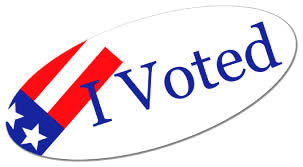What are we really voting for?

The Florida, November 4, election will include three statewide amendments.
Because the wording of the proposed amendment modifications are complex and several pages long, few voters are likely to stand at the poll for the several hours it would require to read and comprehend the terminology used in the amendment modification propositions. Rather than entering the election polls uninformed, the following passages will provide a simplified ballot summary of the proposed amendments to help better understand their impact on voters and all Floridians.
Amendment 1
The Florida Water and Land Conservation Initiative
Ballot Title:
“Water and Land Conservation – Dedicates funds to acquire and restore Florida conservation and recreation lands”
Ballot Summary:
The Amendment 1 modification would dedicate no less than 33 percent of existing taxes to the Land Trust Acquisition Fund to preserve Florida’s natural land and water resources for the next 20 years. The Land Trust Acquisition Fund is intended to conserve, restore, protect, improve and reduce the pollution of natural resources such as: lands providing (drinking) water, wildlife conservation areas, historical/geological sites, beaches, trails, national parks, vegetation, agricultural areas (working farms), and the Everglades. Upon voter approval, the Land Trust Acquisition Fund will become effective beginning July 1, 2015 (Ballotpedia.org).
FAQ:
Q: Will approving the Land Trust Acquisition Fund increase the amount taxpayers are required to pay?
A: No. The Amendment 1 modification will help keep drinking water clean. It will protect our rivers, springs and beaches and restore natural treasures like the Everglades—without any increase in taxes (FloridaGovCoalition.com).
Amendment 2
Florida Right to Medical Marijuana Initiative
Ballot Title:
“Use of Marijuana for Certain Medical Conditions”
Ballot Summary:
The Amendment 2 modification would permit individuals who suffer from debilitating diseases or chronic physical medical conditions, such as: epilepsy, cancer, arthritis, glaucoma, HIV, AIDS and chronic neuropathic pain an identification card consenting the possession and medicinal use of marijuana only after determined approval by a licensed Florida medical doctor. Caregivers who assist patients with their use of medical marijuana are also eligible to be issued a restricted version of the identification card, only permitting the caregiver to purchase (not to consume) medical marijuana on behalf of the qualified patient. Only the Department of Health can issue identification cards to patients and caregivers. Registration and regulation of facilities used to produce and distribute marijuana for medical purposes will be facilitated by the Department of Health. Upon voter approval, the use of marijuana for certain medical conditions will become effective January 1, 2015 (Ballotpedia.org)
FAQ:
Q: If I am a patient with a Florida state Department of Health issued medical marijuana identification card, can I legally use medical marijuana outside the state of Florida?
A: No. A Florida state issued medical marijuana identification card will only be valid in the state of Florida. Any handling of marijuana outside the state of Florida (with the exception of states that have regulated the recreational use of marijuana) is considered a violation of the federal law.
Q: I was previously charged with the unlawful possession/manufacturing/trafficking of marijuana. Am I still eligible to be issued a medical marijuana identification card?
A: No. Individuals who have previous charges related to the unlawful possession/manufacturing/trafficking of marijuana cannot be issued a personal or a caregiver’s restricted version of a medical marijuana identification card.
Q: If I am issued a medical marijuana identification card, will my job or school have to accommodate my “need” to medicate in public?
A: No. Places of employment or education are not required to accommodate a patient’s need to medicate in a public place.
Amendment 3
Florida Prospective Judicial Vacancies
Ballot Title:
Prospective Appointment of Certain Judicial Vacancies (unofficial)
Ballot Summary:
The Amendment 1 modificThe Amendment 3 modification would empower the Governor to fill the judicial vacancies in office by selecting a judge or justice from a group of three to six candidates who will be chosen by the judicial nominating commission. The Amendment modification would grant the governor authority to choose a successor he or she considers suitable to fill a vacant judicial position before a judge’s term is completed. The governor’s authority to fill a vacant judicial position can be executed when the individual obtaining the judicial position reaches the mandatory retirement age of 70, fails to qualify for reelection or fails to be reelected. Under current law, the Governor does not have the power to fill any judicial vacancies until the current justice or judge’s full term has been completed. (Ballotpedia.org)
FAQ:
Q: What are judicial vacancies?
A: Judicial vacancies are judge or justice employment openings within the judiciary branch of the government.
Q: What’s authority does the judicial branch have in the government?
A: The Judiciary branch has the authority to interpret and motion laws into effect after determining whether or not the law is considered constitutionally just (whitehouse.gov).
Q: How long is the term of office for judges?
A: “Federal judges and justices do not have fixed term and can serve until death, retirement, or conviction by the Senate (whitehouse.gov)”.
In the state of Florida, judges who work within the circuit court are appointed a term length of 6 years. Florida state judges working within district courts of appeal or the Supreme Court will be appointed a term of at least 1 calendar year (JudicialSelections.us).

Suehally Macias is a Managing Editor of The Hawkeye
Suehally was born in Bronx, New York and has been living in Florida since 1994. Suehally...
